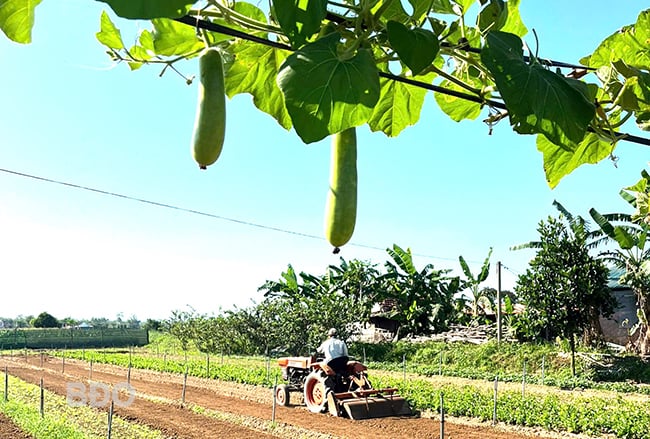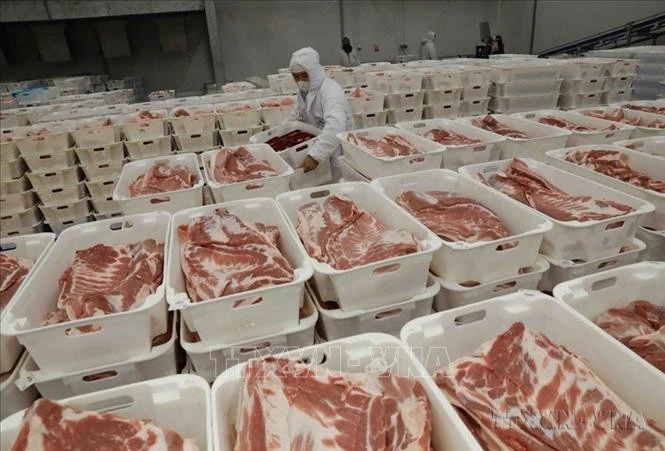Jennifer Breheny Wallace (American) is an expert in the field of parenting, author of the book "Never Enough: When Pressure to Achieve Becomes Toxic - and What We Can Do About It".
To complete the book, she interviewed many psychologists, researchers and surveyed 6,500 parents around the world.
In the process, Wallace discovered that the most successful children were raised by parents who were “ healthy goal-seekers ,” rather than negative competition and achievement-seekers. They were motivated but did not believe that achievement determined their worth, character, or personality.

Parenting researcher Jennifer Breheny Wallace
Those children will be in stark contrast to most teenagers today, who often grow up in a "hyper-competitive" environment from academics, sports to other extracurricular activities. Focusing only on high or low results makes many students become victims of a "toxic achievement culture", increasing the rate of depression and stress.
Excessive parental concern about their children’s performance is a major cause of mental health crises among adolescents. Constantly expressing concern about their children’s academic performance can mislead children into believing that they are only valued when they do well.
She said the research process for the book inspired her to make a major change in her parenting style for her three children.
Every parent wants to do everything in their power to help their child succeed in school. They may hire private tutors, enroll their children in extracurricular activities, or even sign them up for expensive summer programs.
But parenting researcher Wallace warns that these investments may be stifling children's motivation to learn, rather than boosting it. She calls this phenomenon the "encore effect."

Many parents have applied methods that put more pressure on their children and make them more self-conscious. Illustrative photo
“Children, especially in wealthy communities, may bear a special burden of replicating the wealth of their parents. In a context of growing inequality, parents and children understand that success is no longer easy. Unlike in the past, we no longer have a guarantee that each generation will achieve the same or surpass the previous generation, ” Wallace told CNBC.
Parents who are worried about their child's test performance or whether he or she will make the sports team often ask probing questions as soon as they get home, Wallace says. This risks increasing the child's anxiety. So one thing this mom never does with her child is ask him or her about his or her performance as soon as he or she gets home.
"When my kids walk in the door, instead of asking, 'How did you do on your Spanish test?' what I say is, 'What did you have for lunch?' I talk about things that have nothing to do with their performance," this mom revealed.

Instead of highlighting achievements like getting good grades, focus on specific personality traits that led to your child's success. Photo: Pexels.
“Focusing too much on how your child is performing, such as congratulating them on good grades instead of praising their efforts, is an example of a “toxic achievement culture,” says the mother of three. What I mean by this: When our sense of self is entangled in our achievements, we can’t separate our intrinsic worth from external successes or failures.”
To help kids separate achievement from self-worth, Wallace advises parents to "deny the premise" that there is only one path to success.
Parents should let their children participate in activities that interest them, regardless of whether they look good on their college applications. In addition, parents should reduce the importance of getting into top universities.
"Remind your kids that the most important thing is what they do with their time, not where they spend it (e.g. school)," the expert advises.
Korean fried toothpicks
Source


![[Photo] President Luong Cuong and King Philippe of Belgium visit Thang Long Imperial Citadel](https://vstatic.vietnam.vn/vietnam/resource/IMAGE/2025/4/1/cb080a6652f84a1291edc3d2ee50f631)


![[Photo] Prime Minister Pham Minh Chinh meets with King Philippe of Belgium](https://vstatic.vietnam.vn/vietnam/resource/IMAGE/2025/4/1/be2f9ad3b17843b9b8f8dee6f2d227e7)
![[Photo] General Secretary To Lam receives King Philippe of Belgium](https://vstatic.vietnam.vn/vietnam/resource/IMAGE/2025/4/1/e5963137a0c9428dabb93bdb34b86d7c)
![[Photo] Close-up of Vietnam's sniffer dog team searching for earthquake victims in Myanmar](https://vstatic.vietnam.vn/vietnam/resource/IMAGE/2025/4/1/d4949a0510ba40af93a15359b5450df2)


























































































Comment (0)